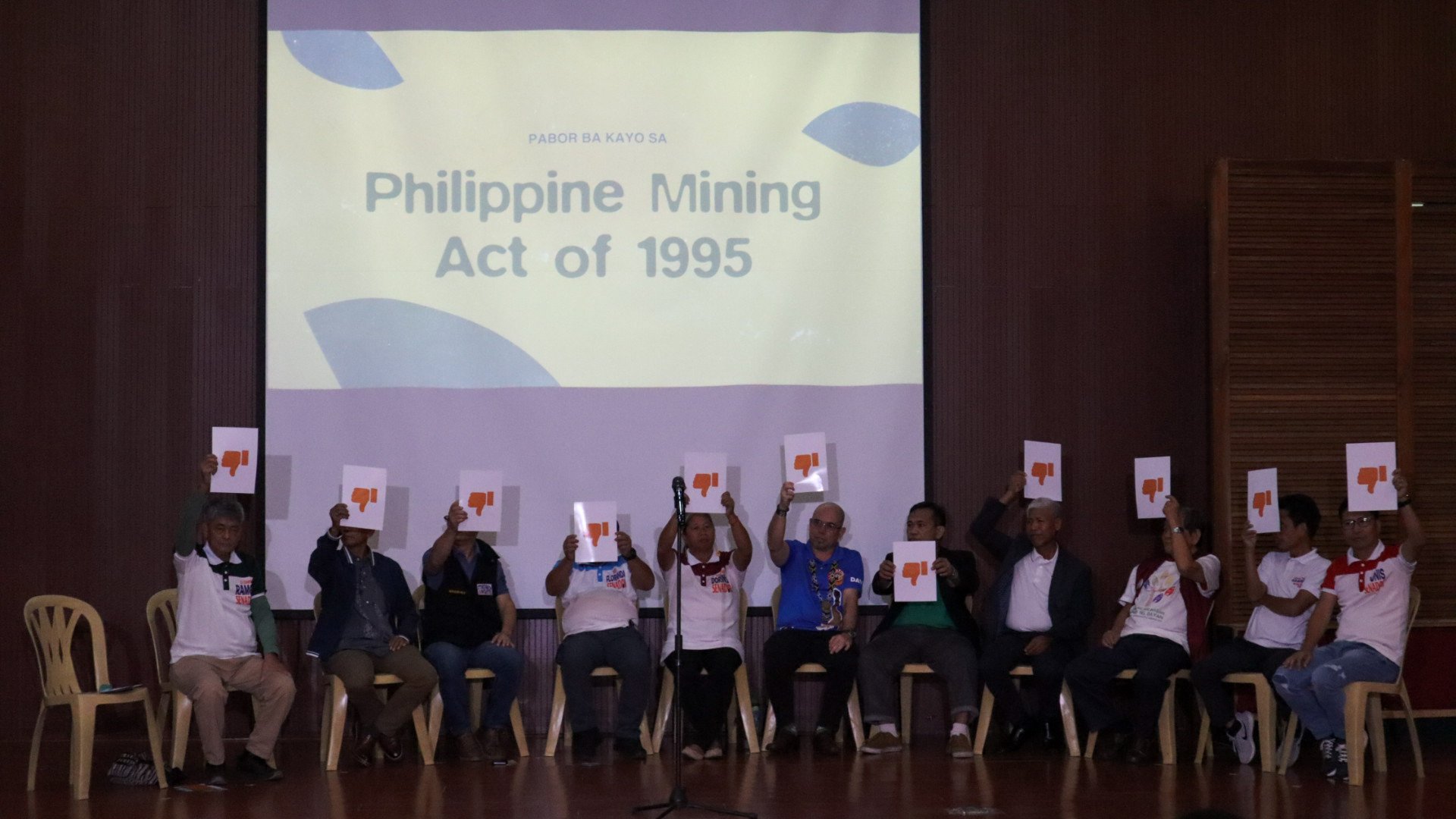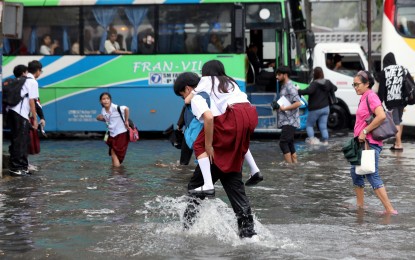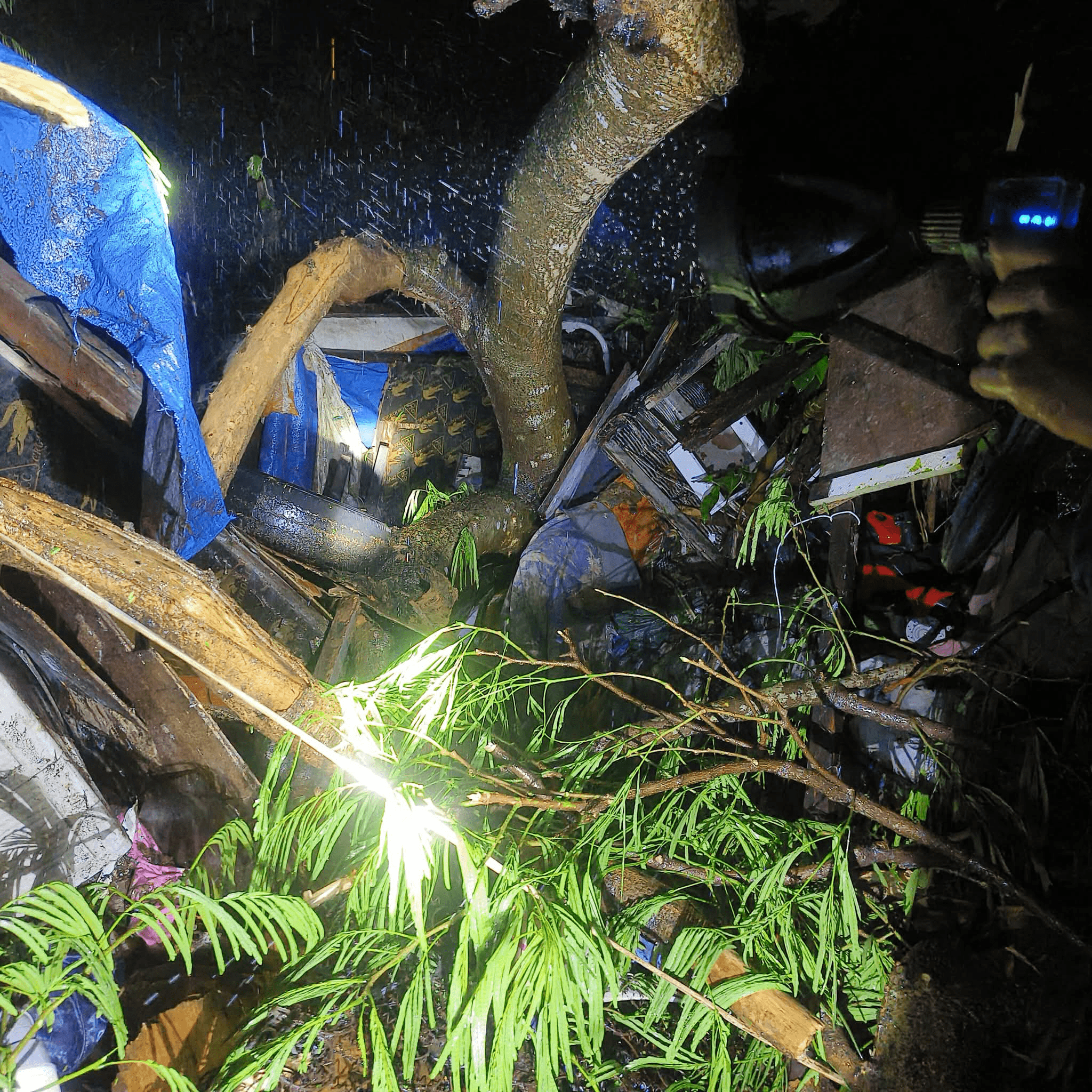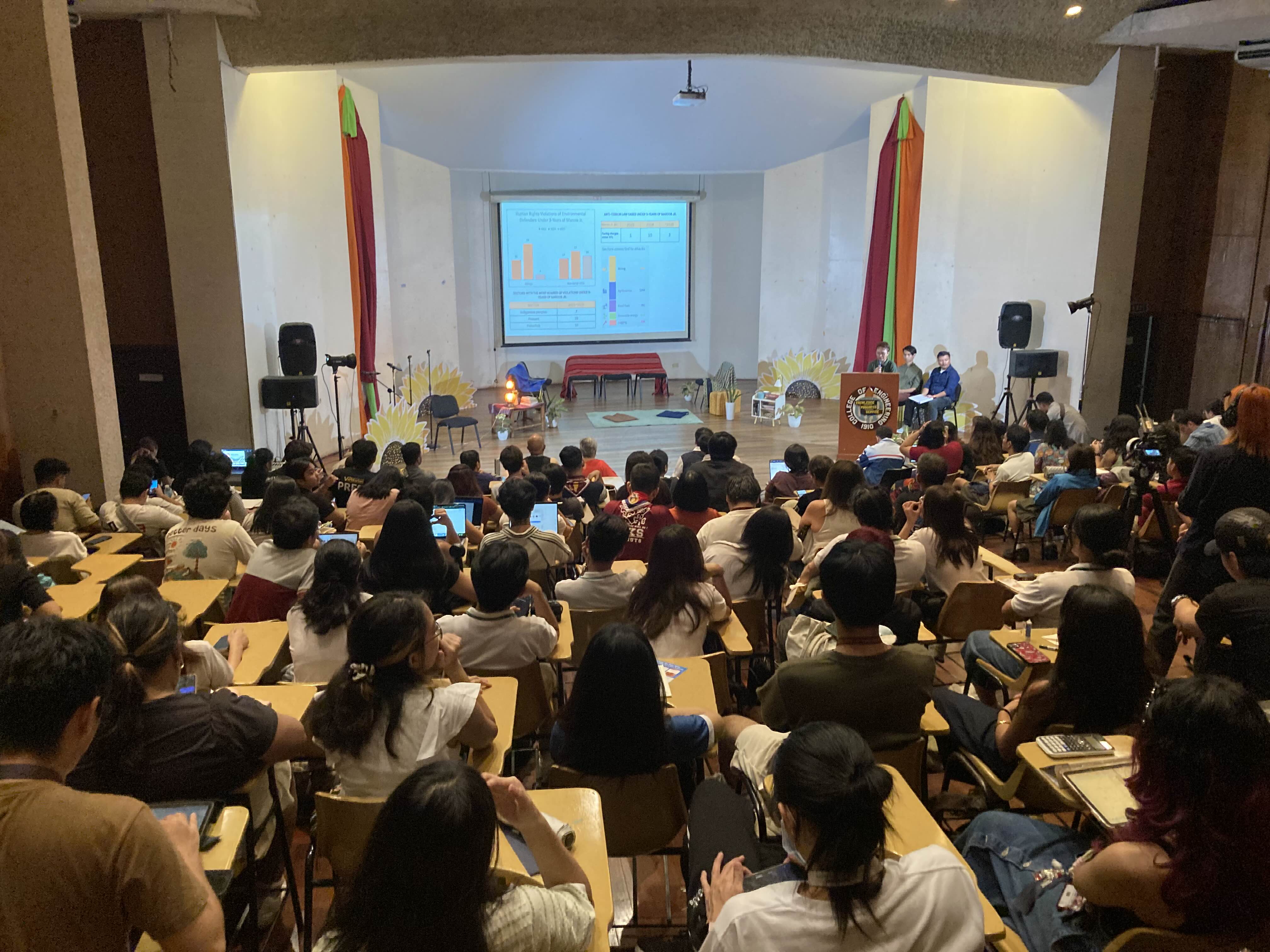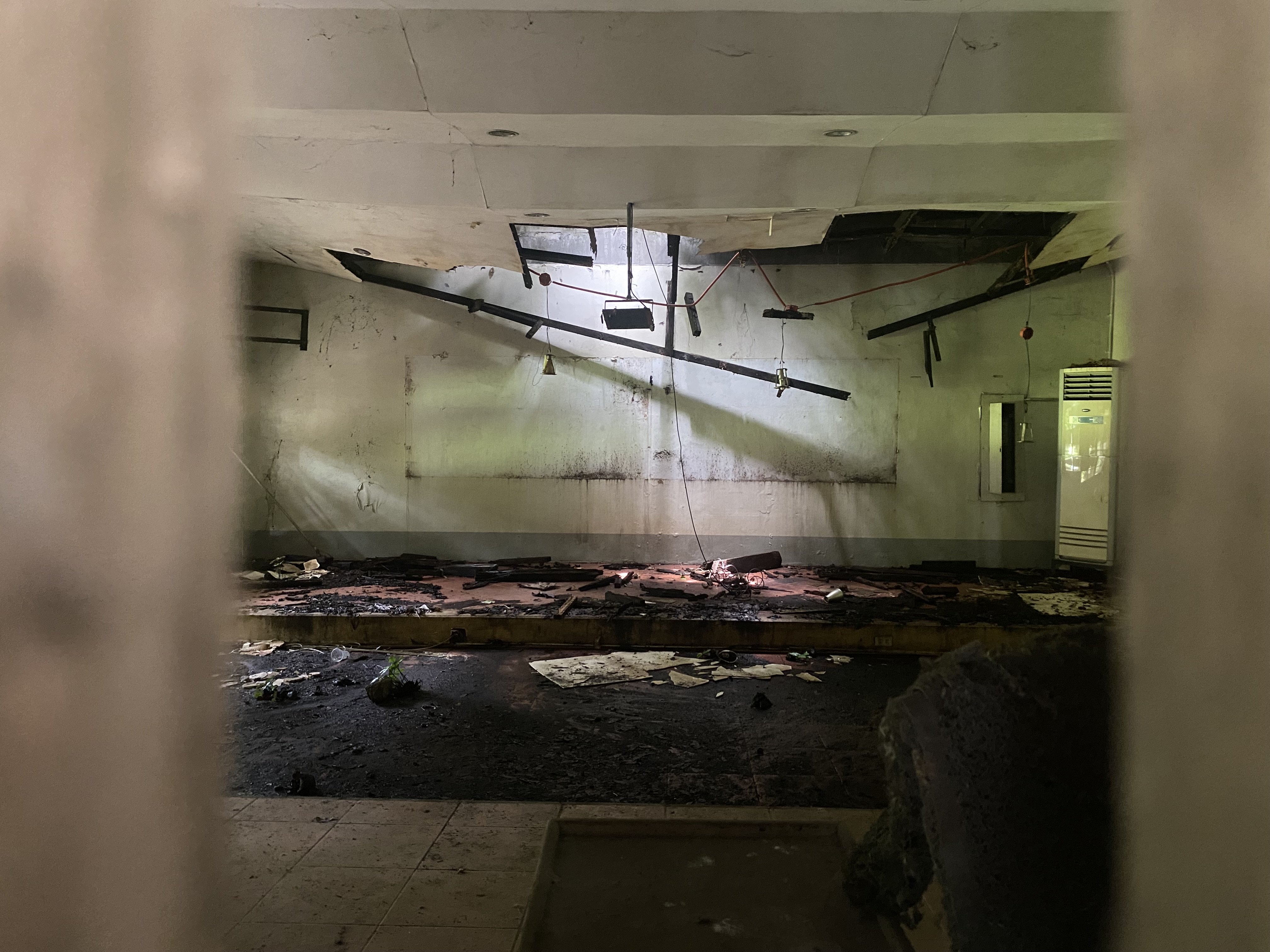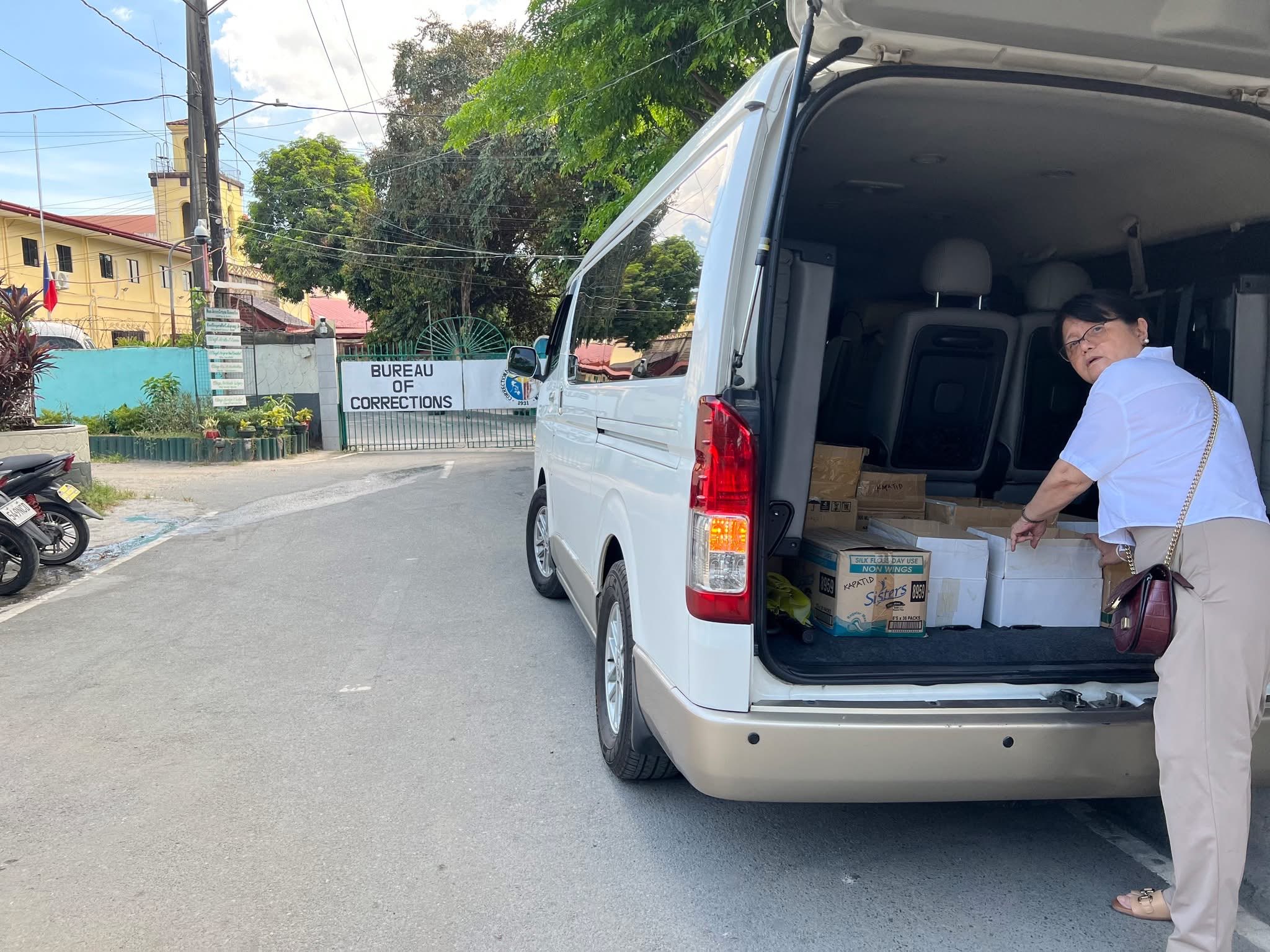Former President Rodrigo Duterte’s slate of senatorial candidates is the dirtiest bloc of senatoriables in the upcoming May elections, with the administration slate coming in as a close second, according to an assessment by environmental coalition Panatang Luntian.
The Makabayan bloc, in contrast, along with other eco-advocates like labor leaders Leody De Guzman and Luke Espritu, Ramon Magsaysay Awardee Roberto “Ka Dodoy” Ballon, and Makakalikasan Chairperson Roy Cabonegro bested other candidates in the rankings.
In the Envibe Check report, candidates’ platforms and track records were scored a negative one, zero, or positive one based on seven criteria relating to environmental rights and climate justice.
Seven of the 12 dirtiest candidates are running under Duterte’s PDP-LABAN, while two are from President Ferdinand Marcos Jr.’s Alyansa slate, and three are running under smaller parties.
All 12 scored negatively on supporting environmental defenders, the greatest determinant of negative scores, with 43.8% of the engagements failing under this category.
Candidates against eco-rights
Since 2012, the Philippines has been deemed the most dangerous place for environmental defenders in Asia, as reported by Global Witness, an international non-governmental organization investigating environmental rights abuses.
A total of 298 murders related to defenders were documented in the Philippines between 2012 to 2023, and countless more harassment tactics are being weaponized against eco-activists in the country. From enforced disappearances to military detention, the international NGO cited that the state is a prime actor in the intimidation to those who speak out against corporate harm.
When Jonila Castro and Jhed Tamano, two red-tagged eco-activists, revealed that they were coerced into signing an affidavit of surrender by the state forces after being abducted, reelectionist Sen. Bato dela Rosa urged the Department of National Defense to charge the two with perjury.
It was one of several documented abduction and harassment cases against eco-defenders.
Another closest ally to the Dutertes is senatorial hopeful Allen Capuyan, Duterte’s former chairman of the National Commission on Indigenous People, who ironically red-tagged indigenous groups during his term.
Beyond red-tagging and harassment, Duterte’s slate has also been criticized for policies that pose environmental risks.
Former Cagayan Economic Zone Authority administrator Raul Lambino welcomed the first cryptocurrency firms in the country by letting 10 blockchain and virtual currency companies operate within the zone.
Mining computers that store and maintain blockchains are energy hogs, generating an annual carbon footprint equivalent to a highly industrialized city, according to a 2019 study.
The mining industry is also a big carbon contributor, backed by multinational investors that possess 100% of mining rights through a stipulation in the Philippine Mining Act of 1995.
Alyansa candidate Rep. Camille Villar from the infamous clan of land grabbers has an unsurprising link to the mining industry. Her brother, Manuel Paolo Villar, is currently the vice chairman of TVI Resource Development Philippines Inc., a mining firm.
Just last year, one of the company’s mines was slapped with a cease and desist order after arsenic was found in nearby groundwater.
Progressive leaders on eco-reforms
Makabayan attendees, along with other senatorial candidates pledged their support for repealing the Mining Act in favor of more sustainable legislation during the Luntian de Avance held at the Institute of Biology in UP Diliman on March 14.
On other environmental fronts, Makabayan bets Reps. France Castro and Arlene Brosas were active in Congress, launching probes into the P389-million dolomite beach project, while former National Anti-Poverty Commission chief Liza Maza condemned mining encroachments on Lumad lands in 2017 over environmental concerns.
More recently, Castro questioned the Department of Environment and Natural Resources' eviction order against the Masungi Georeserve Foundation, warning that the 300-hectare protected area is now being opened for commercial use.
Deep within the reserve lies a vital watershed that regulates water flow to Metro Manila and Manila Bay, making it a key factor in the severity of natural disasters.
Another Makabayan senatorial bet, fisherfolk leader Ronnel Arambulo, slammed the government's flawed disaster risk reduction plans in the wake of Typhoon Carina, which devastated Metro Manila.
He held Environment Secretary Toni Yulo-Loyzaga, a Marcos appointee, accountable for failing to address destructive initiatives like reclamation, which green groups have pointed to as the prime suspect behind the massive flooding in the Metro.
In total, the twelve greenest senators either scored positively in all categories or neutral in at least one. All of them scored positively on the Environmental Defenders and Civic Space criterion, a stark contrast to the Duterte and Marcos slate.
"Those who are the green candidates most likely topped the fact-checking assessment, because these are the people whose background came from the grassroots, the people who actually have first-hand experience of environmental issues,” Niña Fegi, coordinator of Panatang Luntian said. ●
First published in the April 8, 2025, print edition of the Collegian.
EDITOR’S NOTE: A previous version of this article attributed over 100 deaths of environmental advocates to President Ferdinand Marcos Jr.’s administration. The article has since been updated to reflect the 298 deaths from 2012 to 2023.
